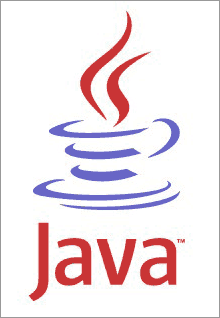|
Sun Microsystems finds the JavaScript love At long last, Sun is embracing JavaScript, the technology that's driving Web 2.0. Too bad it took the company so long to realize its mistake.
(Business 2.0 Magazine) -- Sun Microsystems, the creator of Java, is finally glomming onto JavaScript. Think that's not much of a story? It is, because it tells you something about Java's tortured history, and JavaScript's bright future.
The Java programming language that Sun developed in the early 1990s provoked a lot of enthusiasm early on and spawned countless startups during the Internet boom that followed. Most flamed out after the bust, while Sun (Charts) struggled for ways to make money off of Java, whose sales it won't disclose. As Java has floundered, JavaScript has blossomed. An 11-year-old programming language that's unrelated to Java, JavaScript powers today's hottest websites. Internet giants like Google (Charts) and Yahoo (Charts) and a host of startups now use JavaScript in conjunction with XML - a technology combination known as Ajax - to make websites act more like desktop applications. Ajax is what lets users scroll through Google Maps or click through a Flickr slideshow without having constantly to reload a Web page. From disbeliever to devotee Sun has just gotten hip to JavaScript's glory. To profit on it, the company is building JavaScript and Ajax support into Java. This way, Sun is hoping that programmers conversant in Java will keep using the programming language to create interactive Web applications. Greg Murray, Sun's Ajax architect, acknowledges that coworkers and Java customers had long been skeptical about JavaScript. "The Java developer community has looked at JavaScript as something that Web-page authors - those crazy hackers - use," he says. "The perception at Sun, until the Ajax phenomenon, was that JavaScript wasn't up to snuff. That mentality has totally changed in the past six months. Now it's just a question of how much do you use it." Kudos to Sun for seizing the opportunity. But embracing JavaScript now doesn't address the company's bigger problem: A generation of Web developers have bypassed Java and instead used simple Web-page development tools to code in JavaScript. Sun's strategy is to lure these younger developers to Java. Separated at birth JavaScript had an unusual start. Developed in 1995 by Netscape Communications engineers looking to make Web pages more interactive, JavaScript didn't have anything to do with Sun at first. And that created tension between Netscape and Sun. Although Netscape claimed JavaScript was based on Java, Sun wasn't happy about the confusing similarity between the two names. One of Java's principal engineers, Arthur van Hoff, harrumphed in an e-mail to his fellow Java developers: "Oh well, we were not involved in the design of this language. It has no relation to Java applets, it doesn't interface to Java, nor is it implemented in Java." Sun and Netscape later reached enough of a rapprochement to let Netscape keep using "Java" in JavaScript's name. But Java and JavaScript remained very different programming languages, with very different approaches. A decade ago, Sun pushed Java as a way to create "applets" - small, downloadable software applications which could run on any computer. But starting about two years ago, JavaScript-powered "widgets," which are used to customize websites, became all the rage. Java, on the other hand, is more commonly used to create cell-phone videogames or complex enterprise applications. Taking the wrong tack Now Sun wants a piece of JavaScript's profit potential. It's just going about it in the wrong way. Using Java, a robust programming language, to output JavaScript seems like overkill. Part of the reason JavaScript is so popular is that you don't need a computer-science degree to use it to create simple applications. But writing JavaScript through Java development tools is like hiring a math Ph.D. to do your accounting. Sure, he can do it, but it hardly seems the extra effort. It's ironic that Sun is now hoping that Java can piggyback off JavaScript's buzz. That's exactly what Netscape hoped to do back in the 1990s when it created JavaScript. But JavaScript's rise is a victory of the simple over the complex. For sophisticated programmers who have been coding in Java for a decade, Sun's new tools may be the most comfortable way for them to get used to the JavaScript they used to sneer at. For most Web developers, Sun's attempt to bring JavaScript back into the Java fold just complicates matters. They'll be wise to ignore it. A better approach: forget turning JavaScript hackers into Java programmers. Sun should try instead to serve them as a separate audience - much like Adobe (Charts) has done with its Spry framework, a JavaScript library aimed at Web designers and not hardcore programmers. |
Sponsors
|

